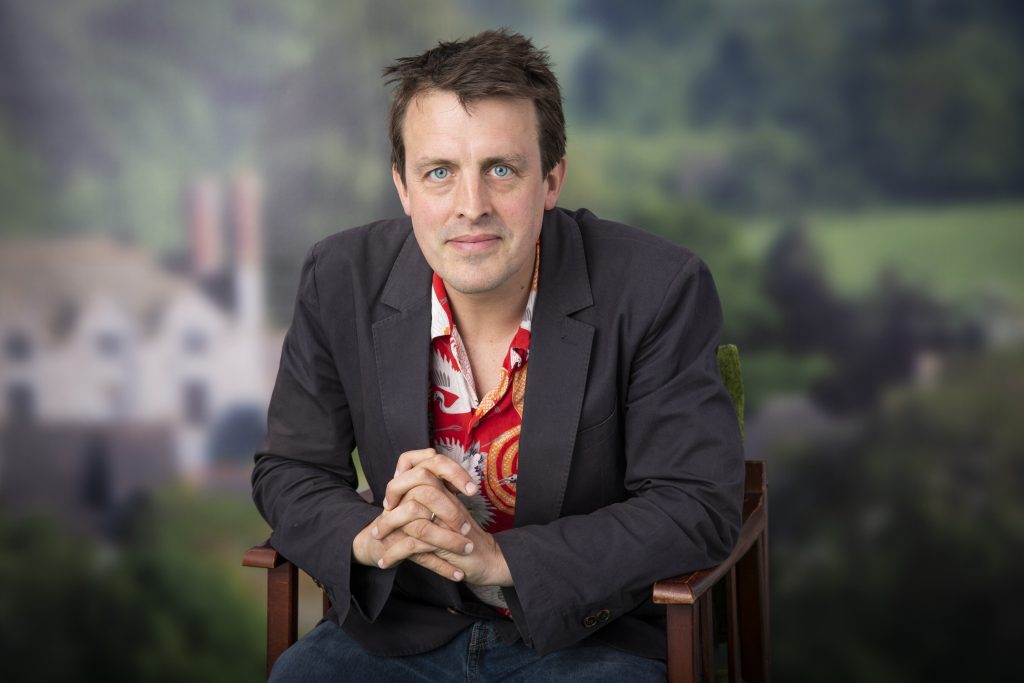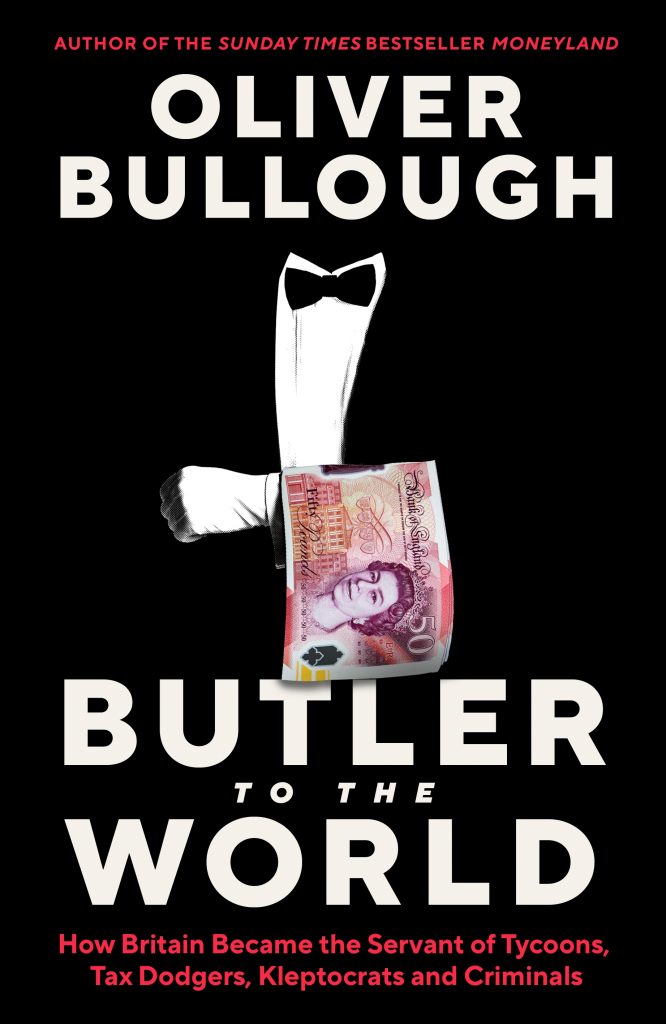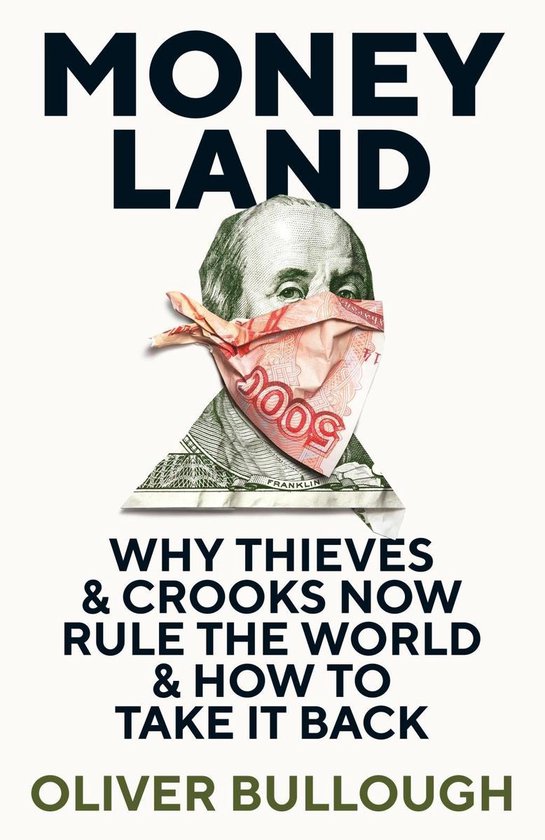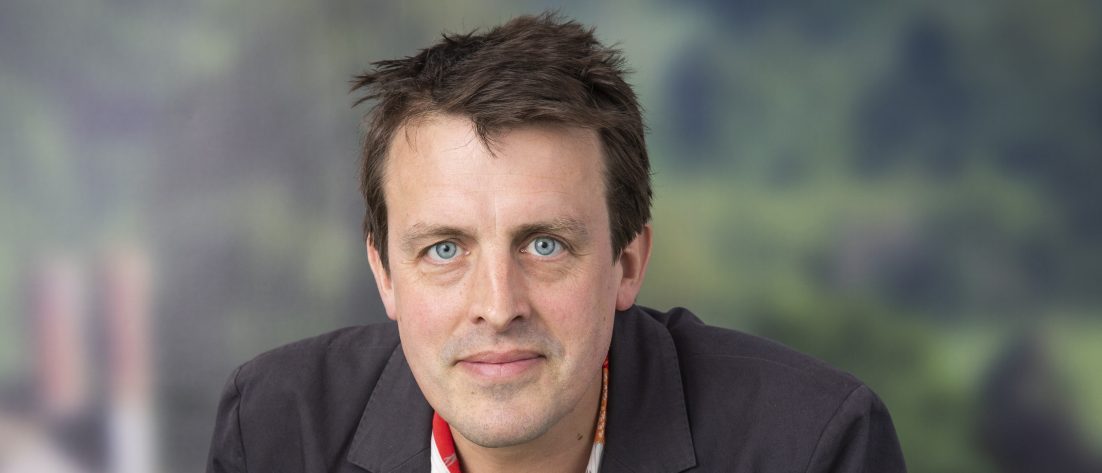“Most European countries have got pretty good laws, it’s just that they’re not being enforced. And that’s my big concern.”
——————–
Oliver Bullough will deliver a keynote speech at the Leaders in Finance AML Europe event in Brussels on 22 September 2022. Please go to the website for more information and to register.
——————–
Jeroen Broekema: Oliver, great to talk to you. First of all, what made you interested in corruption, anti money laundering etc?
Oliver Bullough: I became interested in corruption as a subject of investigation after the revolution in Ukraine in 2014. I lived in and traveled in the former Soviet Union for many years, so I’ve had people demand bribes of me quite often. But I’ve never appreciated the way that corruption is a system and a way of perverting a state and turning it into a looting machine. And it was the very rapid realization that corruption in Ukraine or Russia or rather former Soviet Union countries that I knew well could only be understood in the context of their integration with western capital markets. That made me feel it was a subject that really needed to be written about. I’ve read about corruption as a Russian phenomenon, a Ukrainian phenomenon or a Nigerian phenomenon. But far too little is written about corruption as a transnational phenomenon in which western countries are as implicated as countries of the global south.
Jeroen Broekema: Currently, a lot of people talk about it, given the whole situation in Ukraine, the oligarchs and the freezing of assets and all of that, but before, this was not something the wider public was talking about a lot. There were these moments with the Panama Papers and other moments where there was a lot of transparency, has that changed a lot now?
Oliver Bullough: You’re right, it’s a subject that doesn’t get nearly enough attention and as a result, really huge crimes don’t get any kind of political attraction. I find it astonishing, for example, that the Danske Bank money laundering scandal isn’t known by everyone. It’s such a huge and almost unrivaled money laundering scandal and yet it just isn’t known by ordinary people. And that is extraordinary. If there was an equivalent actual bank crisis, if someone actually broke into a bank with a gun and stole a fraction of that much money, then everyone would know about it, there would be films about it. But just because it’s sort of a white-collar crime, in inverted commas, and a victimless crime, it’s not known about. And I find that very frustrating. The last 90 days or so, since Putin invaded Ukraine, has changed the debate enormously. Just here in the UK, at the beginning of the year our government minister resigned because of the government’s failure to take economic crime seriously. Since then, we’ve had a new economic crime act and we’re promised another one before this time next year. So there has been a big change. And there’s also been a lot of sanctions in all western countries. I suppose my concern around that is that outside the United States I haven’t heard any suggestions that there is going to be significantly more money put in the enforcement, and that’s the really big hole. Most European countries and the UK have got pretty good laws, it’s just they’re not being enforced. And that’s my big concern. My other concern is that so much of the debate is about Russians, Russian oligarchs, Russian enablers and all that, and far too little about the fact that in terms of how the money gets here and where the money came from, the Russians are really no different to other oligarchs. And so, it seems to me at the moment we’re being very reactive in our response to this and not proactive. We are not thinking that maybe in two years’ time the foreign policy crisis will be China invading Taiwan and then we’ll be having the same debate about Chinese oligarchs. So why not have it now?

Jeroen Broekema: When you mention the Danske Bank scandal, you give one reason why it does get a lot of attention but not as much as it probably deserves. You mentioned it’s a white-collar crime, but is it also because there’s a lot to lose for vested interests, for people that are actually making a lot of money from this? Is that part of it, is there a lobby?
Oliver Bullough: The nature of money laundering is a strange crime; everyone involved is happy about it. There is no victim in the crime, the crime is elsewhere completely. Everyone involved in money laundering is complicit, so it’s a weird crime. You don’t have a direct victim’s lobby, because it’s quite difficult to say “This person lost money which was moved via this bank account.” So there are objective reasons why it’s hard, certainly for journalists, to write about money laundering in the way they could write about other crimes. But you’re still talking about 200 billion euros. That is by any stretch of the imagination a colossal amount of money. So it is extraordinary to me that that hasn’t hasn’t gotten more attention, to be honest. And what I’m constantly trying to do is come up with new ways to make people interested in it. What’s the funny metaphor, what’s the entertaining example? What can I do to bring this alive? With the best will in the world, accountancy is not sexy. It’s not supposed to be sexy. It’s supposed to be reliable and boring and that’s the point of it. As a result, making a crime that’s committed by accountants exciting, is hard. So that’s the challenge. But it’s an interesting challenge, it’s a fun challenge. I just wish that it would get more attention.

Jeroen Broekema: On the enablers, the enablers are extremely important for people with a lot of money to move it around. I’m not only talking about money laundering, obviously that’s a big part of it, but also moving money around and staying out of taxes and all that. Can you speak a little bit more to the enablers, who are these people and which groups are they representing and are they actually always aware that they’re enabling or not?
Oliver Bullough: I think that with only a tiny number of exceptions no one thinks they’re the baddie, leaving aside psychopaths. Everybody thinks that they are a good guy or a good girl. In their own head, they’re doing the right thing. Everyone always comes up with justifications for doing what they’re doing. I find it incredibly hard to dive inside the head of a lawyer who for example sends me threatening letters on behalf of an oligarch telling me I can’t write articles or they’ll sue me for defamation or whatever. But if I talk to that lawyer for long enough, surely I can understand why they’re doing it and actually they’ve got perfectly good reasons. They’re just very different to my reasons. And so, who are the enablers? Everyone could be an enabler. They’re not sitting there, rubbing their hands together and stroking a white cat and laughing about how they’re ruining the world. They’re thinking that they’re serving some kind of valuable interest.
Jeroen Broekema: Isn’t there a fine line between having a different moral compass versus finding justifications for what you do, right?
Oliver Bullough: I don’t think there is, actually. I think that all people – and I’m convinced that I’m as guilty of this as anyone – are good at finding moral justifications for things that are in their interests. Economics is just a way of finding justifications to do things that people already want to do. So is philosophy. It’s all about justifying what people want to do. If there is a huge pay check on the table, sooner or later someone will find a moral reason to take it. It’s one of the reasons why the idea of self-regulating the financial system is never going to be all of the answer. It’s crucial, of course, to have the banks and the other financial service industries on board and have them involved, but it has to go with robust enforcement mechanisms as well. Because some people are going to find a justification to do the wrong thing. And I think at the moment the wrong that probably all the European countries, including the UK, are bad at is the enforcement side. Particularly in the Netherlands and the UK, we’ve gotten a lot better at the self-regulation side in the last decade and Switzerland has as well. But I think we haven’t gotten better at the enforcement side and that’s the bit that’s missing. And without that, self-regulation isn’t going to go anywhere.
Jeroen Broekema: How difficult is it for you to get information? How complex is it to study all of it? Or is it actually relatively easy?
Oliver Bullough: I don’t tend to write those articles that spend ages explaining every detail of what is happening. Because I know I don’t want to read that. And I don’t think anyone else wants to read it. The interesting bit is how the money was stolen and how the money was spent. The details, from a journalistic perspective of how the money is laundered, you don’t need that. Is it easy to find the information? It’s fine, it’s out there. There’s lots of information out there, there’s more information out there than I know what to do with. To me, the challenge is not finding the information, the challenge is finding interesting enough examples of what I want to write about that I can persuade people to publish it and read it. That’s the challenge. Because it’s not a subject that immediately interests editors and it’s not a subject that immediately interests readers. So that’s what keeps me awake at night, trying to interest people in it.
Jeroen Broekema: Are there people that have serious issues with what you write? In other words, as you mentioned, a lot of people are benefitting from the existing system and you mentioned earlier you get threatened, is that common?
Oliver Bullough: It’s not uncommon. I get letters from lawyers acting on behalf of oligarchs who tell me that if I don’t stop writing what I’m writing, they’ll sue me or whatever. So that happens occasionally. Genuinely, I’m not sure if I’ve ever spoken to anyone who doesn’t agree with me in terms of my analysis of what has happened in the world. The disagreement is whether it’s important enough. That is the challenge. I can lay out how corruption happens, how the money is laundered, where the money is spent and all of the mechanisms where you would say “Great, that’s fascinating.” But that doesn’t matter. So for me, the challenge is trying to convince people it’s important, not that it happens. I’m sufficiently good at collecting evidence that no one disagrees with me about the facts of what I’m talking about. The significance is the challenge. A politician once said to me that the problem with corruption is that it’s everyone’s fourth priority. They might have a different three priorities first, but you never get to number four; you get stuck in the top three. And for me, the challenge is trying to make it people’s first priority or second priority. And I’m not sure I’m getting there, sadly.
Jeroen Broekema: Your books are doing really well, I think. They’re selling really well, correct?
Oliver Bullough: I’m no J. K. Rowling, but for non-fiction books, they’re doing okay.

Jeroen Broekema: In terms of impact, do you feel that it’s making impact, it’s making its way to politics and sets the agenda? Don’t be modest on this one!
Oliver Bullough: There are members of parliament here in the UK and there are members of the European parliament and politicians from the United States who get in touch with me and talk to me and ask for me to help them with examples and cite my books. So there is an impact, undoubtedly there is an impact. But it’s a lot smaller than I’d like. I have a friend who I work with in Ukraine called Daria Kaleniuk, who runs an organization called the Anti-Corruption Action Centre. The way she explains how she works is by saying that she doesn’t expect to defeat corruption, she just says “We’re at 4% now and I want us to get at 5%.” And I think that’s a really good way of looking at it, because if you say “We want to just get to 100%”, you’re never going to get there. It’s not possible. So just focusing on getting from 4 to 5%, then I think I am having an impact. There are probably from four to four and a quarter of a percent, we’re doing okay. I talked to politicians and officials and I made a video recently to go on Twitter with some people I work with called Led by Donkeys. Very amusingly, it’s now being used as an instructional video for police officers. Which isn’t why we made it at all, we made it as a way of embarrassing the government with how easy it is to launder money. But now I know from sources that police officers are looking at it to teach them how money laundering works. I didn’t expect that to happen, but that’s good. So there are good things happening. It’s just a few things, but I’ll take it.
Jeroen Broekema: That’s great! We are looking very much forward to having you at the event. I hope the same goes for you?
Oliver Bullough: Yeah, on my birthday!
Jeroen Broekema: We saw that, that’s wonderful! Is there a last thing you want to mention to the people that will come and visit?
Oliver Bullough: My book hopefully is going to be published in Dutch and in German, but I worry that it won’t be ready by then. But it is ready in English.
Jeroen Broekema: Thank you so much for this interview.
Oliver Bullough: It was my pleasure.
——————–
Oliver Bullough will deliver a keynote speech at the Leaders in Finance AML Europe event in Brussels on 22 September 2022. Please go to the website for more information and to register.

